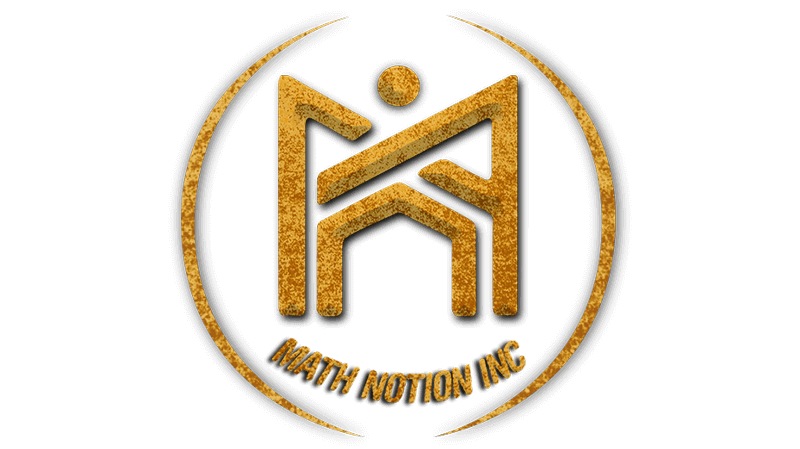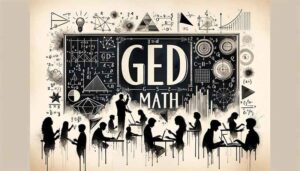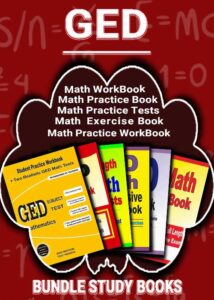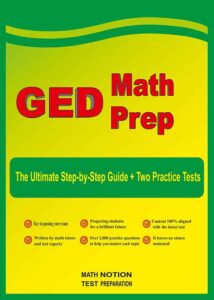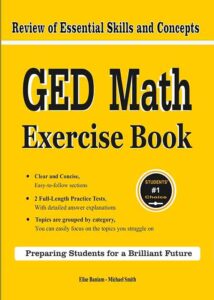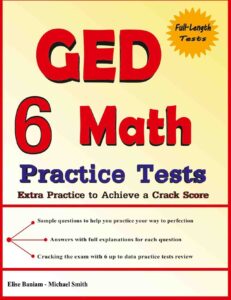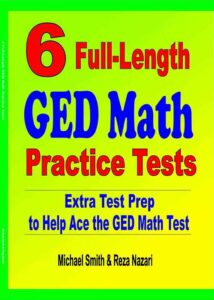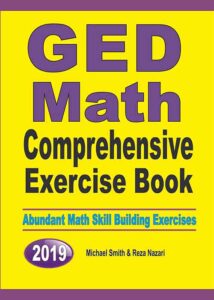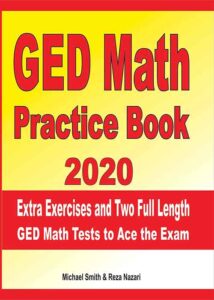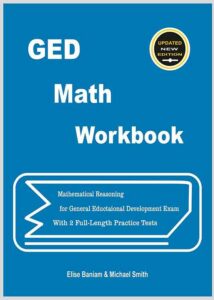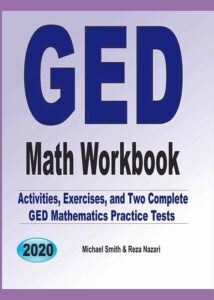
Study Time: 4minutes
How Long is the GED Math Test?
Introduction
The GED (General Educational Development) test is a crucial milestone for individuals seeking to earn their high school equivalency credential. Among its various sections, the GED math test is often regarded as one of the most challenging. One of the most common questions asked by test-takers is, “How long is the GED math test?” Understanding the duration and structure of this test is essential for effective preparation and time management. This article will delve into the specifics of the GED math test duration, its format, and provide valuable insights on how to prepare for it. Whether you are a student gearing up for the test or an educator guiding students, this detailed guide will equip you with the knowledge needed to succeed.
1. Overview of the GED Math Test
1.1 Purpose of the GED Math Test
The GED math test is designed to measure the mathematical skills and knowledge that are typically acquired in a high school education. It serves as a key component of the GED exam, which allows individuals who did not complete high school to demonstrate their academic proficiency and earn a high school equivalency credential. The GED math test assesses a range of mathematical concepts, from basic arithmetic to more advanced topics like algebra and geometry.
1.2 Importance of the GED Math Test
Achieving a passing score on the GED math test is essential for earning the GED credential, which can open doors to higher education, better job opportunities, and increased earning potential. The math test is often viewed as one of the more challenging sections of the GED exam, making thorough preparation crucial for success.
1.3 Format of the GED Math Test
The GED math test is divided into two parts. The first part allows the use of a calculator, while the second part does not. This format is designed to test both computational skills and the ability to solve problems without technological assistance. The test includes a variety of question types, including multiple-choice, drag-and-drop, hot spot, and fill-in-the-blank questions.
2. Duration of the GED Math Test
2.1 Total Time Allotted
The total time allotted for the GED math test is 115 minutes. This duration is carefully designed to provide sufficient time for test-takers to answer all questions while also challenging their time management skills.
2.2 Breakdown of Test Sections
The GED math test is divided into two main sections:
- Section 1: This section allows the use of a calculator and lasts for 45 minutes. It includes questions that require complex calculations and problem-solving skills.
- Section 2: This section does not allow the use of a calculator and lasts for 70 minutes. It focuses on testing basic arithmetic and number operations without technological assistance.
2.3 Time Management Tips
Effective time management is crucial for completing the GED math test within the allotted time. Here are some tips:
- Pace Yourself: Allocate a specific amount of time for each question and move on if you’re stuck.
- Answer Easy Questions First: Quickly answer questions you find easy to secure those points, then return to more challenging ones.
- Keep an Eye on the Clock: Regularly check the time to ensure you’re on track to complete the test.
3. Structure and Content of the GED Math Test
3.1 Types of Questions
The GED math test includes several types of questions to assess different mathematical skills:
- Multiple-choice: Questions with four or more answer choices.
- Drag-and-drop: Questions where you move items into correct positions.
- Hot spot: Questions where you identify specific areas on a graphic.
- Fill-in-the-blank: Questions where you provide a numerical answer.
3.2 Topics Covered
The GED math test covers a wide range of topics, including:
- Algebra: Linear equations, inequalities, functions, and quadratic equations.
- Geometry: Properties of shapes, perimeter, area, volume, and coordinate geometry.
- Number Operations: Addition, subtraction, multiplication, division, ratios, proportions, exponents, and roots.
- Data Analysis and Probability: Interpreting graphs, tables, charts, measures of central tendency, variability, and probability concepts.
3.3 Sample Questions
Here are some sample questions to give you an idea of what to expect:
- Algebra: Solve for x in the equation 2x + 3 = 7.
- Geometry: Calculate the area of a triangle with a base of 5 cm and a height of 10 cm.
- Number Operations: What is the square root of 64?
- Data Analysis and Probability: Determine the mean of the following data set: 5, 10, 15, 20, 25.
4. Preparing for the GED Math Test
4.1 Study Materials and Resources
There are numerous resources available to help you prepare for the GED math test:
- Official GED Study Guides: These guides provide comprehensive coverage of all test topics.
- Online Courses: Websites like Khan Academy offer free courses that cover GED math concepts.
- Tutoring Services: Professional tutors can provide personalized instruction and support.
4.2 Practice Tests
Taking practice tests is one of the most effective ways to prepare for the GED math test. Practice tests help you familiarize yourself with the test format and identify areas where you need additional study. Many websites offer free and paid practice tests specifically designed for the GED math test.
4.3 Study Tips and Strategies
Here are some tips to help you study effectively:
- Create a Study Schedule: Allocate specific times each day for studying and stick to your schedule.
- Focus on Weak Areas: Spend more time studying topics that you find challenging.
- Use Flashcards: Flashcards can help you memorize key formulas and concepts.
5. Test-Taking Strategies for the GED Math Test
5.1 Time Management During the Test
Managing your time effectively during the test is crucial. Here are some tips:
- Pace Yourself: Allocate a specific amount of time for each question and move on if you’re stuck.
- Answer Easy Questions First: Quickly answer questions you find easy to secure those points, then return to more challenging ones.
5.2 Approaching Different Question Types
Different question types require different strategies:
- Multiple-choice: Eliminate obviously wrong answers to improve your chances of choosing the correct one.
- Drag-and-drop: Carefully follow instructions and check your placements.
- Fill-in-the-blank: Double-check your calculations to ensure accuracy.
5.3 Dealing with Test Anxiety
Test anxiety can affect performance, but there are ways to manage it:
- Practice Relaxation Techniques: Deep breathing and visualization can help calm your nerves.
- Be Prepared: Thorough preparation can boost your confidence and reduce anxiety.
6. Common Challenges and How to Overcome Them
6.1 Understanding Complex Concepts
Some GED math topics can be complex. Here’s how to tackle them:
- Break It Down: Simplify complex problems into smaller, manageable steps.
- Seek Help: Don’t hesitate to ask for help from teachers, tutors, or online forums.
6.2 Improving Calculation Speed
Quick calculations are essential for saving time on the test:
- Practice Regularly: The more you practice, the faster you’ll become.
- Use Shortcuts: Learn mathematical shortcuts and tricks to speed up your calculations.
6.3 Building Confidence
Building confidence is key to success:
- Positive Mindset: Focus on your strengths and progress.
- Mock Tests: Simulate test conditions with timed practice tests to build confidence.
7. Success Stories and Testimonials
7.1 Real-Life Success Stories
Reading about others’ success can be motivating:
- Jane’s Story: Jane struggled with math but passed the GED math test by following a structured study plan and using online resources.
- John’s Story: John balanced work and study, and through consistent practice, he aced the GED math test.
7.2 Tips from Successful Test-Takers
Advice from those who have succeeded:
- Stay Consistent: Consistency in studying is crucial. Set a routine and stick to it.
- Use Multiple Resources: Diversify your study materials to cover all topics thoroughly.
8. Frequently Asked Questions (FAQs)
Q1: How long is the GED math test? A1: The GED math test lasts for a total of 115 minutes.
Q2: How is the GED math test divided? A2: The test is divided into two sections: one allowing the use of a calculator (45 minutes) and one without a calculator (70 minutes).
Q3: What topics are covered on the GED math test? A3: The test covers algebra, geometry, number operations, and data analysis and probability.
Q4: How should I prepare for the GED math test? A4: Use official study guides, take practice tests, and focus on areas where you need improvement.
Q5: How can I manage my time during the test? A5: Pace yourself, answer easy questions first, and allocate time for more challenging questions.
